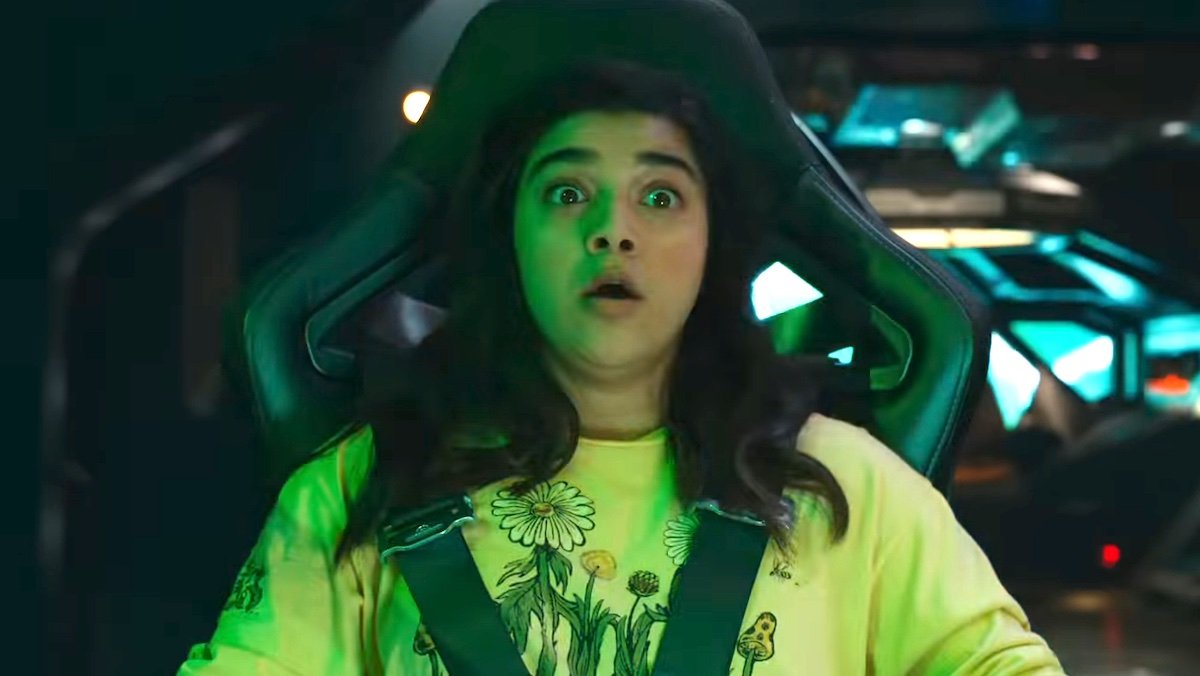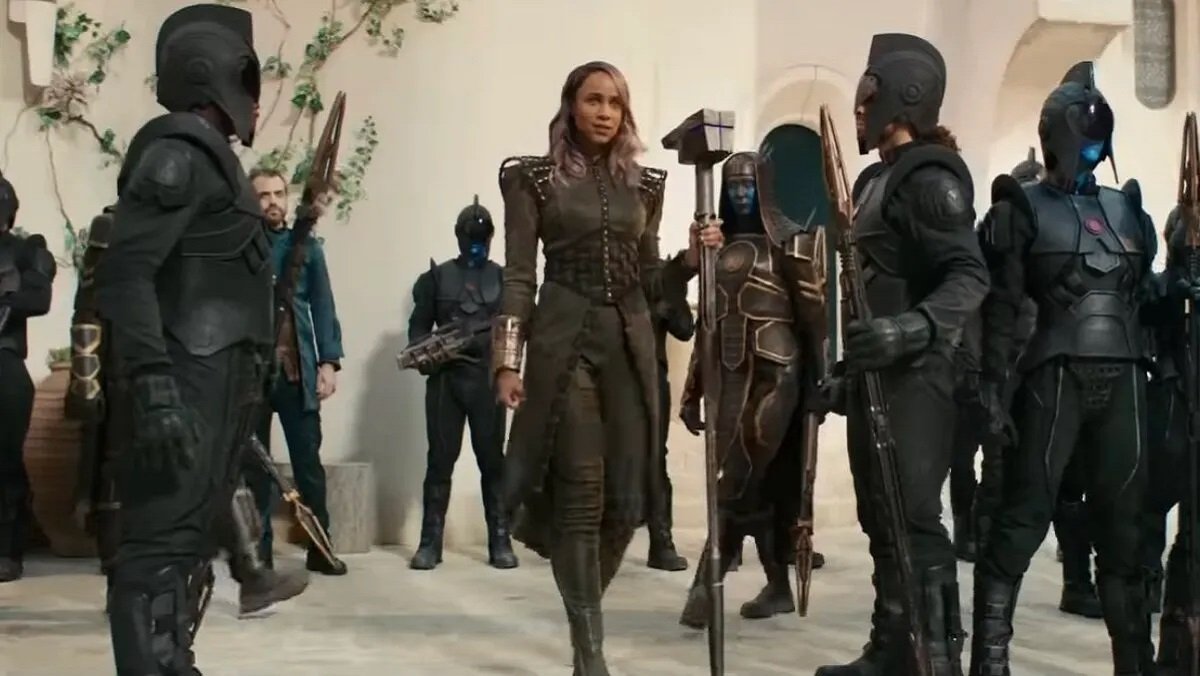The Marvels is a planet-hopping, zany MCU outing that is held together by its leads: Carol Danvers (Brie Larson), Kamala Khan (Iman Vellani), and Captain Monica Rambeau (Teyonah Parris). While on the shorter side for MCU films, The Marvels develops the relationship between Carol, Kamala, and Monica in an engaging and natural manner. The film’s weak points come during its slightly rocky beginning and from the inevitable struggle it faces between its aims and the needs of the MCU’s broader world.

Kamala Khan, Monica Rambeau, and Carol Danvers have not appeared together on screen before. The MCU, after all, introduced Kamala in Ms. Marvel in 2022, while it (re)introduced Monica in WandaVision in 2021. But director Nia DaCosta, and fellow writers Elissa Karasik and Megan McDonell, flesh out their dynamic very well. The relationships between the three leads are easily the most interesting parts of The Marvels‘ story. Kamala, Monica, and Carol are (literally) thrown together when a mistake from Carol’s past comes back to haunt her.
The trio then have to navigate not only their powers, which cause them to switch places with one other if used simultaneously, but also an entirely new relationship and team dynamic. Vellani, who has proven to be a joyous addition to the MCU, spends much of her screen time being the quintessential fangirl. But her character goes through an important journey as her confidence in her powers and herself grows. She realizes that even her idol, Captain Marvel, can make grave mistakes.

While the science of it all is questionable (as is true for most MCU films), the three heroes being linked through their powers makes for a thoroughly entertaining experience. The conceit allows for some fast-paced, electric action scenes. And the extent to which The Marvels stretches and experiments with the idea feels quite entertaining. We also get to see the heroes actually learning and training to work with each other. As cool as it was to see the Avengers assemble in Avengers: Endgame, we never learned how they knew exactly how to fight together. But we do get to see that team-building phase here. DaCosta’s direction keeps the story moving quickly, but never so much as to lose the audience.
While Zawe Ashton’s villain Dar-Benn certainly has intriguing motivations, she ends up following in the path of most forgettable MCU villains. Ultimately, she has very little to work with in the script. Her naked hatred for Captain Marvel is clear, but there was more potential to explore her motivations as a leader of the Kree.

Kamala Khan and her family have time to shine in The Marvels, which grounds the universe-threatening stakes to a teenager simply trying to make sure her family stays safe. We see Kamala promise over and over again to her mother, who is fiercely protective, that she is in good hands with Carol and Monica. The moments shared between Kamala and her mother are incredibly touching, just as they were in Ms. Marvel.
Meanwhile, Kamala’s father and brother bring some comedic relief in the form of their disbelief as they make some of this galactic journey along with Kamala. There are specifically some downright hilarious moments with Samuel L. Jackson’s Nick Fury that, for me as a South Asian and Muslim, indicated that care was taken with the specificity of Kamala’s family’s culture and traditions in The Marvels. DaCosta also leans into the weirdness a comic book-inspired film can afford, and it brings an entertaining detour to the planet of Park Seo-Joon’s Prince Yan. The film is a wild ride, but it balances the humor and the emotional beats mostly well.

Monica and Carol also finally come to terms with how much time they lost in The Marvels, and how they plan to move on as a family that accepts each other, flaws and all. Parris and Larson are compelling to watch together. Additionally, Larson finally gets more to do in this film, as opposed to in her previous MCU appearances. This comes not just in terms of engaging with the actual plot, but also in the range of emotions the movie asks her to convey. We see cracks in Captain Marvel’s oh-so-confident demeanor, and they make her all the more interesting.
Parris also gets the opportunity to be more than just the scientist of the bunch. She has some strong emotional beats opposite Larson. However, where Monica Rambeau ends up at the conclusion of The Marvels feels like a calculated move to set up future MCU expansions, as opposed to something truly in favor of her character.
The movie’s climax spells out major consequences for the MCU as a whole. And The Marvels‘ end credits scene will absolutely send fans off to the races with their theories for where the MCU’s projects will go next. Crucially, though, this is where the film’s best parts—the relationships between Kamala, Carol, and Monica and the broader theme of the responsibility of a power like Captain Marvel’s—threaten to become overshadowed.

The Marvels shines the most when it focuses on the central dynamic between Kamala, Carol, and Monica, as they figure out how to be a team together. While the villain may have been forgettable, she was a formidable test for the leads, and her actions will have sweeping consequences for the MCU as a whole. Overall, the film is an enjoyable journey through new parts of the MCU, along with some much-needed development for Captain Marvel, who finally has to face the consequences of her incredible power.